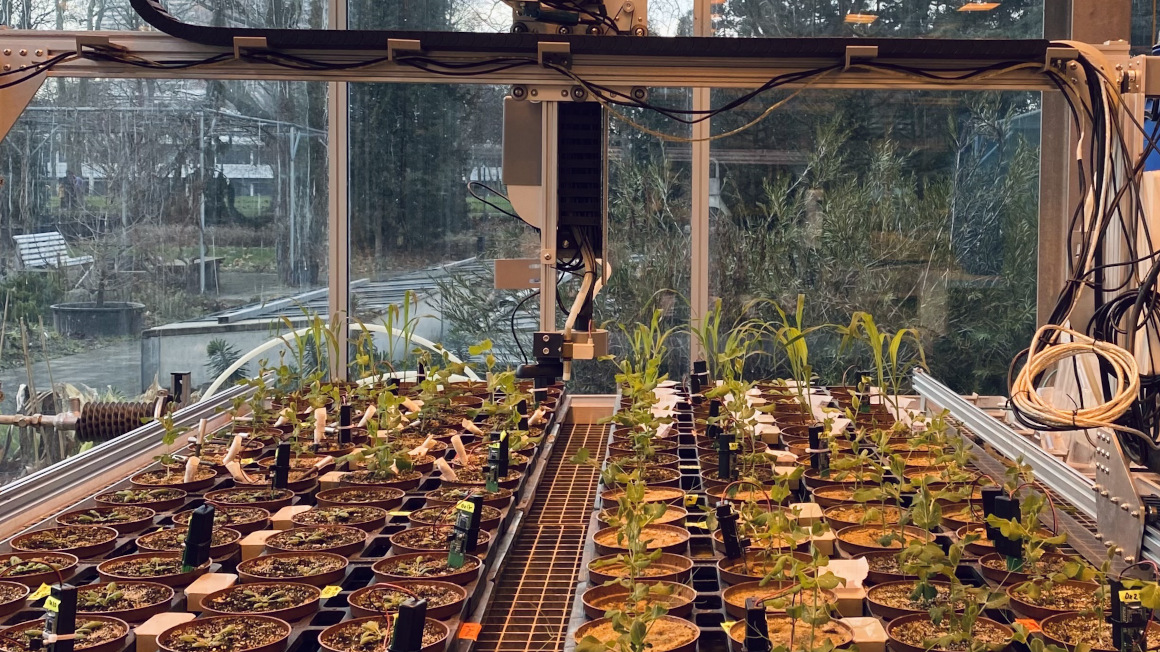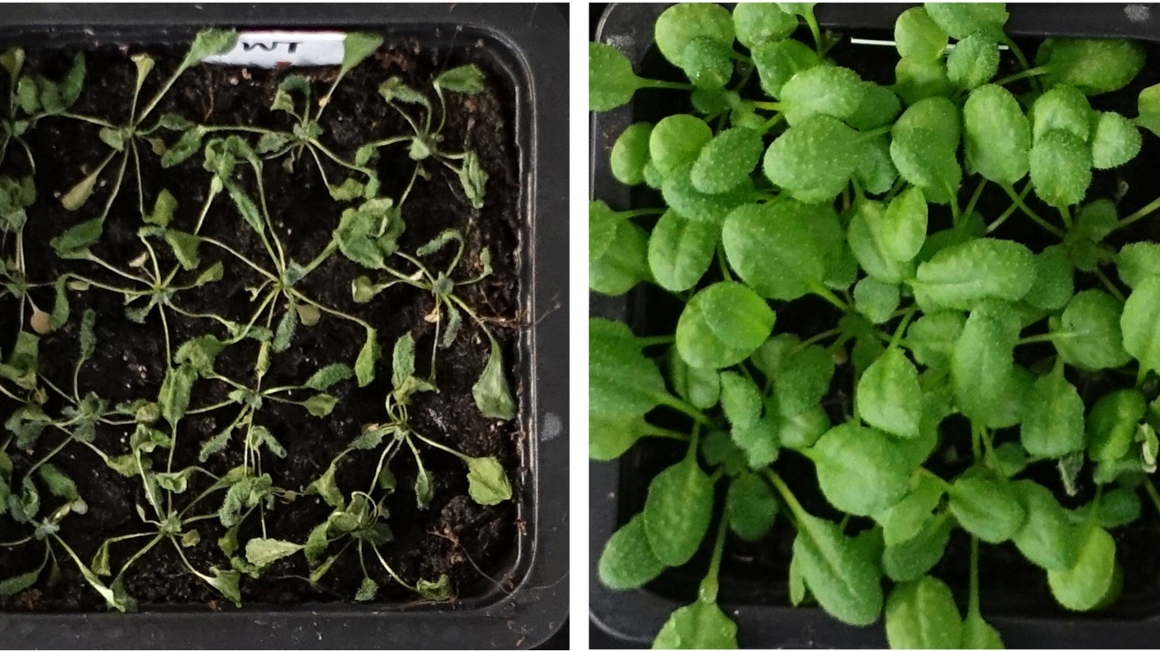Studying climate impacts on plants with a high-tech platform
Researchers and students at TH Köln and the University of Cologne have developed an experimental platform that illustrates how climate change affects plant growth.

Weather extremes such as heat, drought and flooding are increasingly affecting plant growth and biodiversity in the soil, thus jeopardizing the supply of important food crops. But how can the extent of climate impacts on plant growth be measured? To make this clear, researchers and students at TH Köln and the University of Cologne (UzK) have established an experimental platform and developed software that can be used to immediately visualize the results of the experiments.
Illustrating climate impacts on ecosystems
"Our joint approach was to illustrate the effects of droughts and floods on plant growth and biodiversity," says Marcel Bucher from the Institute of Plant Sciences at the University of Cologne. "Through problem-oriented learning, we taught the students the interrelationships so that they could plan and carry out experiments themselves. This involved an interdisciplinary exchange between students from the fields of biology and engineering."
In addition to the platform, the team also developed practice-oriented learning modules in which students were able to create their own concepts for adapting plants to climate change and carry out experiments. For the experiments, they had access to a state-of-the-art experimental facility in a greenhouse at the UzK, where a so-called FarmBot – a robot – watered 144 plant pots every four hours.
Pouring strategy optimized with new pump system
"We mainly recorded the temperature and soil moisture and also measured the humidity and air pressure. The data was then transferred to servers, evaluated and graphically displayed on the platform," explains Uwe Dettmar from the Institute of Communications Engineering at TH Köln. In addition, a pump system was added to the robot, which, according to Dettmar, is capable of dosing water with an accuracy of up to one milliliter. "This enabled us to optimize the casting strategy," says the researcher.
Experimentier-Plattform InnoBioDiv
More information on the InnoBioDiv research project and the experimental platform can be found on the University of Cologne website (only available in German).
Platform free to use – also for teaching
The experimental platform was created as part of the research project "InnoBioDiv - Innovation platform for education and research on the influence of climate change on the growth performance of plants and biodiversity in the soil" funded by the Federal Ministry for the Environment. It aims to highlight the ecological connections and collect concepts and ideas for adapting plants and biotopes to climate change.
The platform with information on the experiments is freely usable as an open educational resource and can also be used in teaching. The CEPLAS - Cluster of Excellence for Plant Sciences was also involved in the project and the experiments were based on its research findings.
bb


